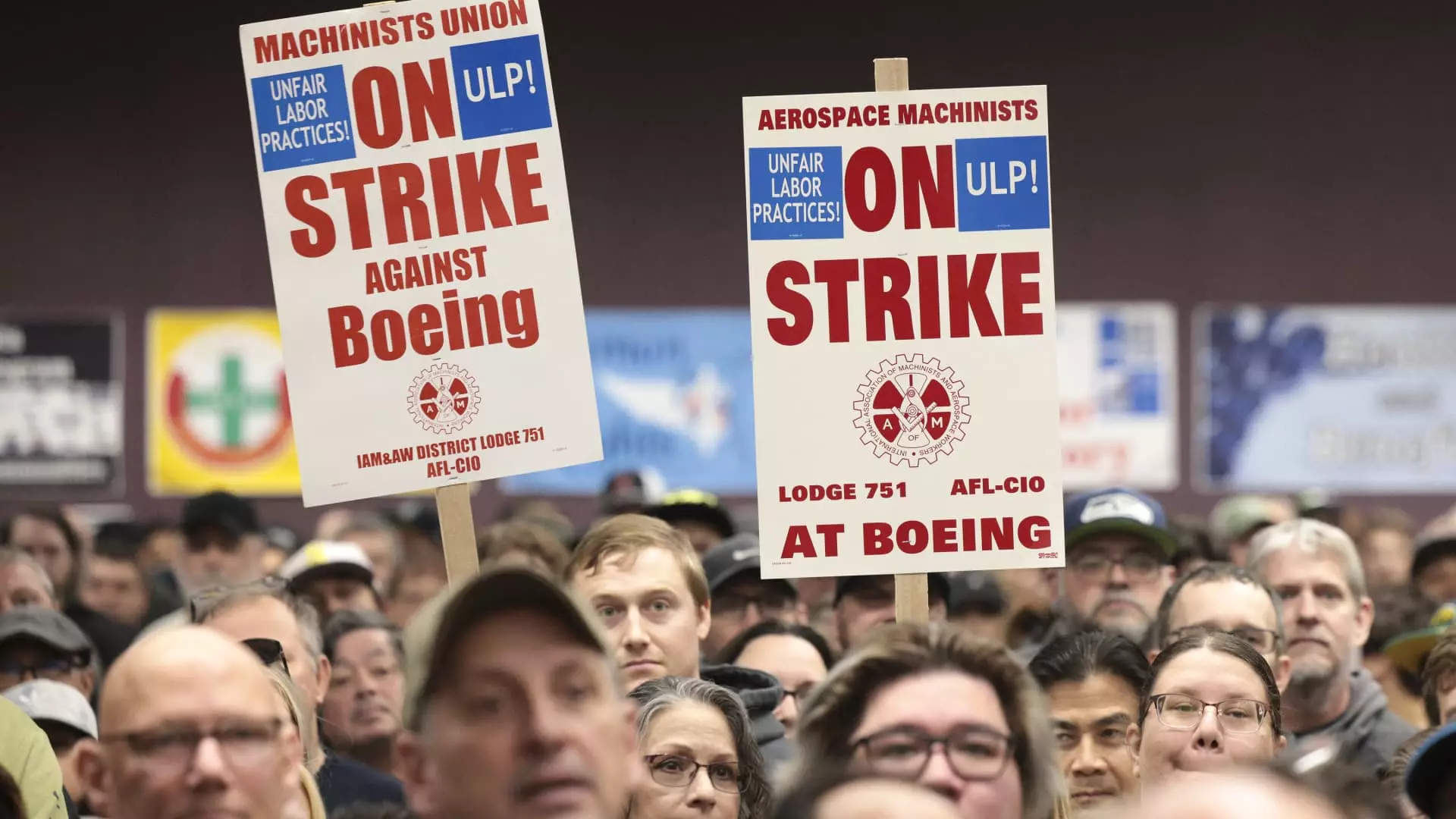In a significant development for Boeing and its workforce, the machinists’ union has presented a newly negotiated contract proposal intended to bring an end to a protracted strike that has lasted over a month. The strike began on September 13, following a decisive rejection of a preliminary agreement by over 30,000 machinists who were dissatisfied with a proposed 25% wage increase. This widespread discontent among union members highlighted not only frustrations over pay but also deeper anxieties regarding job security and the company’s ongoing struggles amidst a safety crisis.
The latest proposal, which will be put to a ratification vote on Wednesday, includes substantial provisions aimed at satisfying union demands. Key highlights of the deal include a staggering 35% wage increase distributed over four years, a generous $7,000 signing bonus, and guaranteed minimum payouts from an annual bonus plan. Furthermore, enhancements to 401(k) contributions underscore an effort to provide employees with a more secure financial future. With these changes, the union seeks not merely to improve compensation but to foster a sense of stability and value among its members, who bear the brunt of Boeing’s operational challenges.
The role of government officials in mediating these negotiations cannot be understated. Acting U.S. Secretary of Labor Julie Su’s involvement represents a critical linkage between corporate interests and labor rights, emphasizing the balanced approach needed to address the concerns of employees while ensuring Boeing’s operational viability. The International Association of Machinists and Aerospace Workers expressed optimism regarding the newly negotiated terms, believing that they effectively address the expectations and needs of the workforce.
However, while labor relations reach a potential turning point, Boeing’s financial landscape remains precarious. The company anticipates reporting considerable losses tied to both its commercial and defense sectors, projected at around $5 billion. Such financial woes are compounded by issues related to a safety crisis earlier in the year involving the 737 Max, which continues to cast a long shadow over its operations. The company’s ability to bounce back not only hinges on a successful resolution to labor disputes but also on a strategic overhaul that the newly appointed CEO Kelly Ortberg must implement.
In the wake of this newly proposed contract, the ratification vote will serve as a pivotal moment for Boeing’s future. Should the workers approve the agreement, it may provide the stability needed for the company to move forward, mitigate financial losses, and rebuild trust among stakeholders. As the manufacturing giant navigates through these turbulent waters, the synergy between employee satisfaction and corporate performance will be crucial. The proposed agreement could signify a new chapter for Boeing, one that seeks to harmonize employee interests with robust operational goals.


Leave a Reply